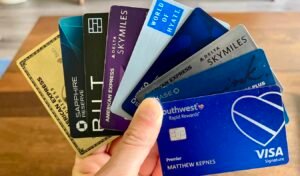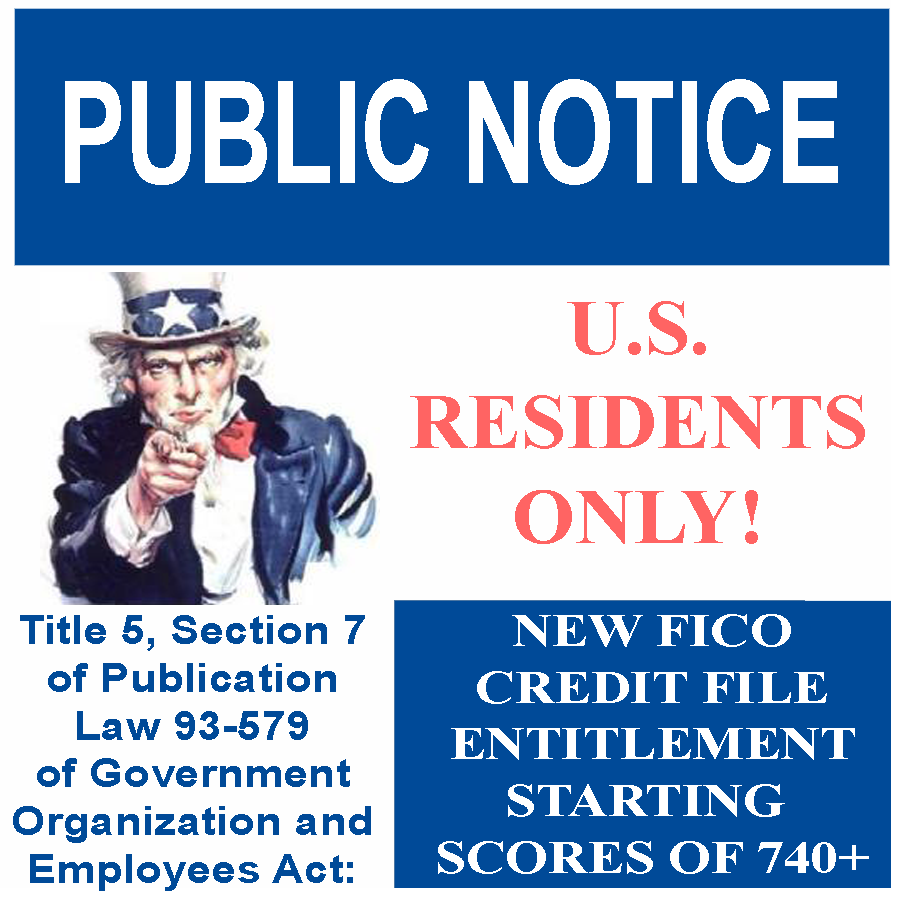December 23rd 2024
Most credit cards generally request a Social Security number (SSN) to confirm your identity and keep track of credit history. However, if you’ve just moved to the U.S. or if you’re an international student who doesn’t have an SSN, there are cards that cater to your situation as well as the ability to get a credit privacy file (CPN) to get access to bank accounts and credit.
your identity and keep track of credit history. However, if you’ve just moved to the U.S. or if you’re an international student who doesn’t have an SSN, there are cards that cater to your situation as well as the ability to get a credit privacy file (CPN) to get access to bank accounts and credit.
How to get a credit card without an SSN
In place of an SSN, some card issuers might accept an Individual Taxpayer Identification Number (ITIN) or a CPN. The CPN is a unique identifier that can be registered with the IRS to people who aren’t eligible for an SSN, and it often serves the same purpose when applying for credit.
To obtain a CPN, you’ll need to register for one HERE.
Fizz debit card
The Fizz card is a credit card that works like a debit card. It requires a US bank account with at least $150 in it, but Fizz accepts SSNs and CPNs. There are no interest charges because your balance is automatically repaid from your linked bank account. Fizz is designed for students and offers cash back at places commonly found near college campuses, making it a great fit for international students. However, since your linked account balance also determines your spending limit, it isn't ideal in emergencies. There is an annual fee: $49.99 for students or $119.99 for non-students.
Pros and cons
Pros
- 🟢 No APR or annual fee
- 🟢 Cashback rewards
- 🟢 No credit score minimum
Cons
- 🔴 Annual fee of $49.99 or $119.99
- 🔴 Credit limit may be low
- 🔴 Requires US bank account
More details
| Annual fee | $49.99 |
| Balance transfer APR | N/A |
| Welcome Offer | N/A |
| Rewards | Up to 100% cash back |
Chase Freedom Unlimited®
Chase accepts CPNs on credit card applications, and it has a lot of cards to choose from. We're calling out the Chase Freedom Unlimited as it's easily one of Chase's top cards for students, thanks to its $0 annual fee and up to 1.5% cashback rewards on purchases. You can also earn up to 3% on dining and up to 5% on travel purchases made through Chase Travel. However, plan on needing a decent credit score, such as above 670, to qualify.
Pros and cons
Pros
- 🟢 $0 annual fee
- 🟢 At least 1.5% cash back on all purchases
- 🟢 Up to 5% cash back on Chase Travel purchases
Cons
- 🔴 May require good credit
More details
| Annual fee | $0 |
| Purchase APR | 0% intro for the first 15 months (then 19.74% to 28.49% variable) |
| Balance transfer APR | 0% intro for the first 15 months (then 19.74% to 28.49% variable) $5 or 3% of the amount of each transfer, whichever is greater in the first 60 days |
| Welcome Offer | $250 after spending $500 in the first 3 months |
| Estimated welcome offer value | $300 based on Finder's valuation |
| Rewards | Up to 5% cash back |
Blue Cash Everyday® Card from American Express
A top credit card on its own, the Amex Express Blue Cash Everyday Card accepts SSNs, CPNs and passport numbers. Amex is also partnered with Nova Credit, which means your foreign credit history can be considered when you apply. The Blue Cash Everyday Card has no annual fee and offers cash back on everyday purchases. You can earn up to 3% cash back on groceries at US supermarkets, US online retail purchases and US gas stations up to a total of $6,000 in eligible purchases. After you've reached that $6,000 cap, the rate drops to 1%. You also earn 1% unlimited cash back on all other purchases. Additionally, you can get monthly statement credits for qualifying purchases with sites like Disney+ and Home Chef. However, like most Amex credit cards, you may need a good credit score to qualify.
Pros and cons
Pros
- 🟢 Accepts SSN, CPN or passport number
- 🟢 Up to 3% on everyday purchases
- 🟢 1% unlimited cash back
- 🟢 Partnered with Nova Credit
- 🟢 No annual fee
Cons
- 🔴 May need good credit to qualify
More details
| Annual fee | $0 |
| Purchase APR | 0% intro for the first 15 months (then 18.24% to 29.24% variable) |
| Balance transfer APR | 0% intro for the first 15 months (then 18.24% to 29.24% variable) Either $5 or 3% of the amount of each transfer, whichever is greater. |
| Welcome Offer | Earn a $200 statement credit after you spend $2000 in purchases on your new card within the first 6 months. |
| Rewards | Up to 3% cash back |
Firstcard® Secured Credit Builder Card
Firstcard accepts CPNs, SSNs and passports, making it ideal for immigrants, international students and non-US citizens. It's geared toward students building credit, with a translated site in Spanish, Chinese, Japanese and Portuguese. Firstcard includes a deposit account (to set your spending limit) and a credit account for borrowing. With autopay, balances are repaid automatically, ensuring 0% APR. Users can earn up to 15% cashback with select partners. But the credit limit is based on deposits, so you may not have the same spending power as a traditional credit card. Fees start at $4.99/month or $48/year, with higher tiers offering higher APYs on your deposit account balance.
Pros and cons
Pros
- 🟢 Accepts SSN, CPN and passport number
- 🟢 No APR or hard credit check
- 🟢 Designed for US and international students
- 🟢 Up to 15% cashback offers with select merchants
Cons
- 🔴 Monthly or annual fee
- 🔴 $8.99 card delivery fee
- 🔴 Credit limit determined by deposit amount
More details
| Annual fee | $48 |
| Balance transfer APR | N/A |
| Welcome Offer | N/A |
| Rewards | Up to 15% cash back |
Capital One QuicksilverOne Cash Rewards Credit Card
Capital One accepts CPNs for some credit cards, including the QuicksilverOne Rewards. This card offers 1.5% unlimited cash back on all purchases. You can earn up to 5% cash back on hotels and rental cars booked through Capital One Travel. This specific Quicksilver card accepts fair credit, but be aware of the 29.99% variable purchase APR and the $39 annual fee.
Pros and cons
Pros
- 🟢 Unlimited 1.5% cash back
- 🟢 Up to 5% on Capital One Travel purchases
- 🟢 Accepts fair credit
Cons
- 🔴 High purchase APR
- 🔴 $39 annual fee
More details
| Annual fee | $39 |
| Purchase APR | 29.99% variable |
| Balance transfer APR | 29.99% variable Balance Transfer Fee applies to balances transferred at a promotional rate (0% at the Transfer APR, 4% of the amount of each transferred balance that posts to your account at a promotional APR that Capital One may offer to you) |
| Welcome Offer | N/A |
| Rewards | Up to 5% cash back |
Amazon Prime Secured Card
Designed for Amazon purchases only, the Amazon Store Card is a secured card that accepts SSN or an CPN and a minimum security deposit as low as $100. It also has a very low 10% variable purchase APR, significantly lower than nearly all other credit cards. The main benefit is the cashback rewards for Amazon Prime members, offering up to 2% on Amazon purchases. With careful management, you may also become eligible to upgrade to the Amazon Store Card that offers up to 5% cash back on Amazon purchases with a Prime membership.
Pros and cons
Pros
- 🟢 Low 10% variable APR
- 🟢 No annual fee
- 🟢 Up to 2% cash back on Amazon purchases with Prime
- 🟢 Low minimum security deposit
- 🟢 Upgrade available
Cons
- 🔴 Can only be used with Amazon
More details
| Annual fee | $0 |
| Purchase APR | 10% fixed |
| Balance transfer APR | N/A |
| Welcome Offer | N/A |
| Rewards | 2% cash back |
U.S. Bank Secured Visa® Card
U.S. Bank accepts CPNs for some of its cards, including its Secured Credit Card. There's also no annual fee, and you can choose your payment due date. The card is secured with a minimum deposit of at least $300, up to $5,000. This card typically allows you to upgrade to an unsecured U.S. Bank card with a positive history, but you can only upgrade with an SSN. U.S. Bank doesn't require a minimum credit score for this card, so if you have limited credit history, this might be a good option. However, you must call or go to a branch to apply with an ITIN, as they don't accept online applications without an SSN.
Pros and cons
Pros
- 🟢 No minimum credit score required
- 🟢 Security deposit as low as $300
- 🟢 No annual fee
Cons
- 🔴 No ITIN online applications
More details
| Annual fee | $0 |
| Purchase APR | 28.74% variable |
| Balance transfer APR | 28.74% variable |
| Welcome Offer | N/A |
| Rewards | None |
Do I Need an ITIN or SSN for a Credit Card?
Credit card issuers generally want an SSN, ITIN or CPN for two main reasons:
Identity Verification.
A SSN, ITIN or CPN serves as a unique identifier, helping the issuer confirm that you are who you claim to be. In addition to these numbers, card providers usually check other details like your current address and a government-issued ID (Check our facts page HERE on how to convert your current photo ID to a CPN photo ID from the DMV with your CPN home address on it for verifications).Credit Reporting.
Because credit cards are a type of credit, issuers report your credit limits, balances, and payment history to the major credit bureaus. They use your SSN, ITIN or CPN to make sure those reports accurately link back to you.
Can I Get a Credit Card Without an ITIN?
Yes, to get a credit card without an SSN or ITIN, you can use a CPN file to get access to credit and banking services. Certain issuers, like American Express and Bank of America, sometimes accept a valid passport number as well. However, if you get a CPN (Credit privacy number), you’ll generally have a much easier time applying for a variety of credit cards. Having an CPN helps you build a U.S. credit history, which opens up a broader range of credit products, including:
- Credit cards
- Cash-back reward cards
- Secured credit cards designed to help new-to-credit applicants
Ask us for our current credit cards list.
What If I Don’t Have a U.S. Credit History?
With legalnewcreditfile.com people that need cross-border credit lets newcomers to the U.S. access banking and credit offers. For example, Here are 10 check system free banks: https://legalnewcreditfile.com/top-10-chexsystems-free-banks-for-cpn-holders-your-path-to-banking-freedom/
Do Credit Cards Build Credit History?
Yes! Credit cards can significantly impact your credit—both positively and negatively. Here’s why:
- Revolving Credit. Credit cards allow you to borrow repeatedly up to your credit limit, unlike installment loans (e.g., auto loans, mortgages) that close once fully repaid.
- Payment History. Making on-time payments can boost your credit score, while late payments or high balances can have the opposite effect.
- Credit Utilization. If you carry high balances, it can hurt your credit score. Keeping your usage low relative to your credit limit generally helps maintain a strong credit profile.
Read about other ways to build credit history through our business build-out package HERE
Bottom Line
While you can find limited credit card options if you only have a passport, most issuers still prefer an SSN or CPN. A CPN makes building your U.S. credit history simpler by offering more opportunities to open credit lines. For more details on how to apply for an CPN, visit our CPN Packages page HERE.
If you’re an international student, you might want to explore student credit cards or cards for those with little to no credit history. These are typically easier to qualify for and can help you establish a positive credit record over time.
Frequently Asked Questions
Does Discover accept CPNs for credit cards?
Yes, Discover currently accepts only SSNs and CPNs for credit card applications.
Can a non-U.S. citizen get a credit card?
Yes, non-U.S. citizens are eligible for credit cards in many cases, but you’ll need to verify your identity. An CPN often serves as an alternative to an SSN.
Can I open a bank account without an SSN?
Yes, certain banks—like SoFi or Chase—will accept a CPN if you don’t have an SSN. This provides a way to start establishing a financial footprint in the U.S.
Extra Tip:
For international students or newcomers, starting with a secured credit card is a great way to establish credit, as most secured cards will report to the major credit bureaus. Once you show consistent on-time payments and responsible use, you can typically upgrade to an unsecured card with better benefits.
Disclaimer: This content is for informational purposes only and may not encompass all scenarios or reflect the latest credit card policies. For the most accurate guidance, check each credit card issuer’s official website or consult a financial professional.



Legal New Credit File
The legal team at TMMinistry of Civil Affairs© PMA A/K/A LNCF Stands as a beacon of hope for the traditional consumer. Comprising a dynamic association of members who operate as Attorneys-in-Fact for our PMA registered members, each brings a unique blend of expertise, passion, and dedication to the table.
With backgrounds in corporate law, civil rights, and criminal defense, they offer comprehensive legal services that cater to everyday people. Their mission is to provide legal clarity about consumer privacy while upholding the values of integrity, transparency, and client-focused service.
Since its inception, LNCF has made significant strides in the legal community, earning trust for their innovative approach to complex contract challenges in the privacy space.
The team’s collaborative spirit is the cornerstone of their success, allowing them to leverage their individual strengths in a unified strategy. Whether navigating high-stakes client transitions or offering in-depth consulting services, they remain committed to making a positive impact in the lives of their clients and the broader American community.
